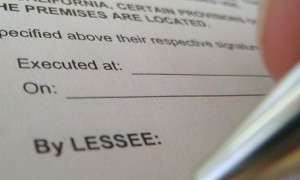Renter’s Rights in New Jersey: The Rent
Part two in a series on renter’s rights in New Jersey. This part focuses on rent and how it can affect the tenant-landlord relationship. Topics include unpaid rent, increases, and tax benefits of renting.
When it comes to the tenant-landlord relationship there is one thing that can make or break it, the rent.
This is part two in a series of posts examining renter’s rights in New Jersey and looking into the Truth In Renting pamphlet published by the state of New Jersey. Part one in the series focused on the lease, which can be found here. This part will focus on the rent, including allowable penalties, increases, and tax benefits for both tenant and landlord. As a reminder, landlords are required to distribute Truth In Renting to tenants.
What Is It?
Simply put, rent is money that is paid to the landlord by the tenant in order to use the residence owned by the landlord. The amount is agreed upon in the lease. The tenant is responsible for paying the full amount to the landlord on time, as defined in the lease. In exchange, the owner of the property must maintain the property and ensure that it is habitable.
What if It Goes Unpaid?
In the case of unpaid rent, it is unlawful for the landlord to hold on to any of the tenant’s possessions as a penalty to for non-payment. This can be a serious offense, as the tenant is able to sue for damages in the county court of where the property is located. The tenant can also be awarded double the damages and the cost of court. If the tenant threatens to leave without paying, then the landlord’s course of action is to get a temporary restraining order preventing the tenant from leaving the jurisdiction of the county. This is only if the landlord has not received a judgment from the court yet. If the tenant has given the landlord written notice that they will be leaving but continue to reside in the residence without paying, then the tenant can be held responsible for double the standard amount for every month the tenant stays without paying.
Increases
Increases or rent control are governed at a municipal level within the state of New Jersey. In some municipalities there may be a rent control board that enforces the ordinances set. This typically can happen in a municipality where there is a housing shortage, but newly constructed, multiple-dwelling buildings are exempt from this control.
When it comes to increases, landlords must give notice to the tenant of the increase, which also contains the option for them to quit the lease as well. Without proper notice given, the landlord cannot evict for unpaid increases. If proper notice is given but the tenant refuses to pay the increase, then the landlord may begin the eviction process. An increase must be deemed fair and reasonable — which includes determining factors such as the amount, expenses of the landlord, profitability, and how the increase compares to rates of similar properties in the area. If deemed fair by the court then the tenant must pay the increase to stay.
Tax Benefits
There is a tax rebate and a tax credit when it comes to renting in New Jersey. The tax rebate can be passed on to the tenant from the landlord. This would happen when the landlord’s property taxes decrease from a year after 1998. The landlord must own five or more rental properties for this to happen, and the full amount of the decrease is to be passed on to the tenant from the landlord in monthly installments. However, municipalities that have rent control ordinances may have ordinances to prevent this from happening.
The New Jersey Homestead Property Tax Credit is a credit for residential tenants who meet certain income requirements. As long as the tenant was a tenant during the tax year they are filing for, then they can apply to receive this benefit. This benefit is paid out by the state and is not the responsibility of the landlord. For more information, a tenant should have a discussion with a tax professional.
The second part in this series has been an overview of rent as written out in the state of New Jersey’s Truth In Renting pamphlet. The next part of this series will focus on habitability and what the landlord must provide, as well as what the tenant should expect.
Please leave any questions, comments, or personal experiences on tenant-landlord relationships below.
[cf]skyword_tracking_tag[/cf]




